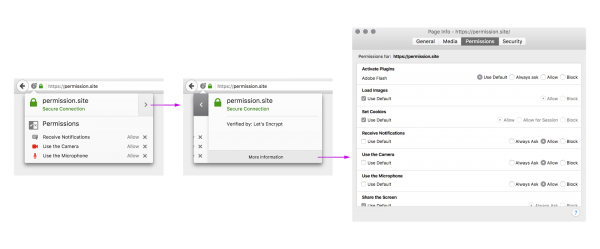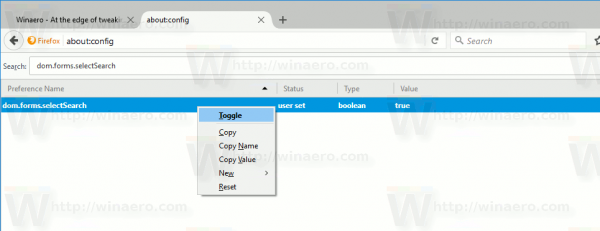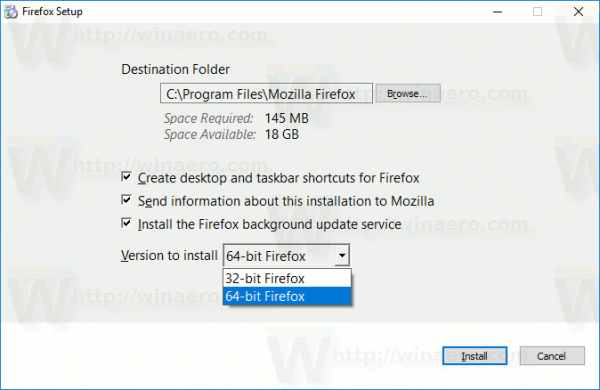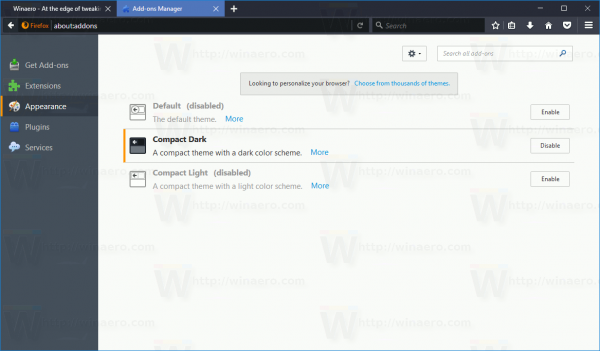Yesterday, Mozilla released a new version of their browser. Firefox 53, a new update for the stable branch, comes with a number of changes which may be not welcomed by some users. Let's see what has changed.
Advertisеment

First of all, the browser does not support old versions of Windows. As we wrote recently, Windows XP and Windows Vista will be moved automatically to the ESR branch, which means they will not receive new features, only bug fixes. After a year, Mozilla will drop support of these operating systems completely.
For macOS, there will be no 32-bit Firefox versions any more.
Another interesting change is updated hardware requirements. If you have a CPU older than Pentium 4 (for example, I have Pentium III, Pentium II and a number of 16-bit machines here), you won't be able to install and use Firefox 53.
Mozilla has optimized the development process. The Aurora build branch is eliminated and merged with Firefox Beta. Users will be moved to the Beta branch automatically.
In this release, Firefox has a refined user interface for permission notifications. It looks cleaner and allows the user to grant or revoke permissions quickly for the open page.

Multiprocess mode is extended with the project "Quantum Compositor" (e10s-gpu). This will improve the stability and performance of Firefox on Windows for machines with certain GPUs. You can read about this in detail HERE.
For lists with a large amount of items (more than 40), there is a new inline search feature which will allow searching for a menu item. This feature is disabled by default, but you can enable it in about:config. Set the dom.forms.selectSearch parameter to true.

The installer stub (web installer) allows choosing between 32-bit or 64-bit versions to install. This works only in Windows.

Finally, Firefox 53 comes with the long awaited Compact Dark and Compact Light themes. We covered them earlier in the following article: Here Are New Compact Themes in Firefox 53.

There is a new policy for the HTTP referrer. There is no GUI for it yet, but a new about:config option can be configured. The setting network.http.referrer.userControlPolicy needs to be created manually. It can take one of the following values:
0 - no-referrer. Specifies that no referrer information is to be sent along with requests made from a particular request client to any web site.
1 - same-origin. The "same-origin" policy specifies that a full URL, stripped for use as a referrer, is sent as referrer information when making same-origin requests from a particular client.
2 - strict-origin-when-cross-origin. The "origin-when-cross-origin" policy specifies that a full URL, stripped for use as a referrer, is sent as referrer information when making same-origin requests from a particular request client, and only the ASCII serialization of the origin of the request client is sent as referrer information when making cross-origin requests from a particular client.
3 - no-referrer-when-downgrade (default). The "no-referrer-when-downgrade" policy sends a full URL along with requests from a TLS-protected environment settings object to a potentially trustworthy URL, and requests from clients which are not TLS-protected to any origin.
Other changes are as follows:
- Lightweight themes are applied in private browsing mode.
- Reader mode now shows the estimated reading time of the page.
- A refined appearance for audio and video controls in Firefox.
- Media playback on new tabs is blocked until the tab is visible.
- Extensions won't be able to load XUL code anymore. Developers are suggested to move to the WebExtensions API.
- TLS 1.3 support.
- Lots of updates to CSS and developer tools.
Links:
Release notes | Firefox download
Support us
Winaero greatly relies on your support. You can help the site keep bringing you interesting and useful content and software by using these options:

I like Compact Dark theme!
Drop of support for older processors, as stated in the release notes, is only for GNU/Linux.
Thanks Sergey! Very informative.
You are welcome.